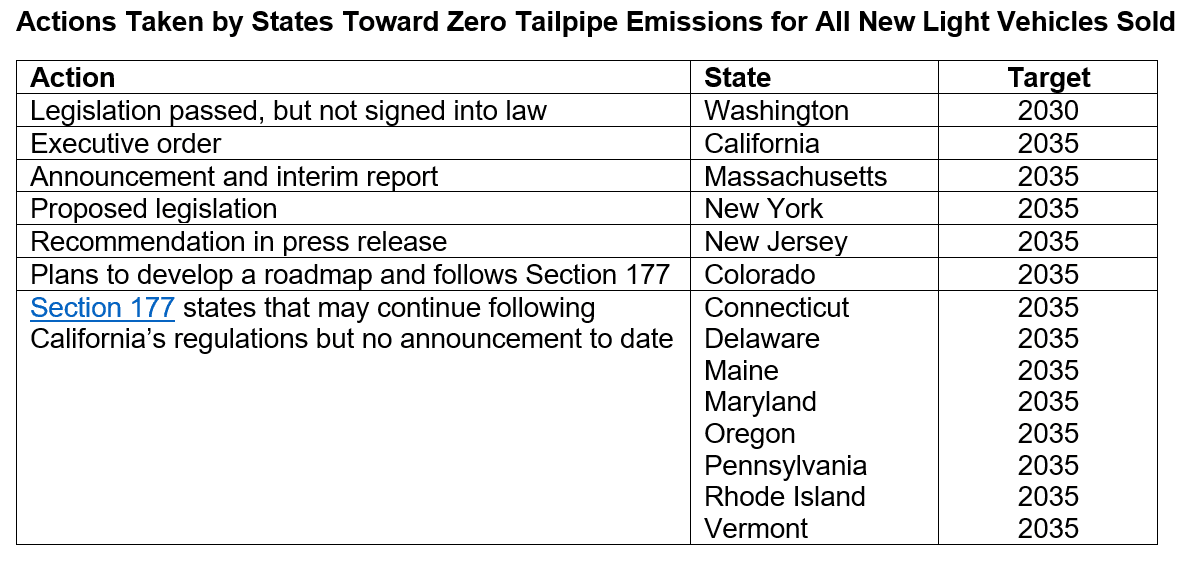
In September 2020, the governor of California signed an Executive Order requiring zero emissions for all new light-duty passenger vehicles by 2035. The California Air Resources Board will put regulations in place accordingly. Thirteen other states may also be on a path to end sales of new light-duty passenger vehicles powered by internal combustion engines by 2035, but none have regulations in place at this time. Five of those states have announced goals or taken actions, and eight additional states, which currently follow California’s emission regulations under Section 177 of the Clean Air Act regarding criteria pollutants and greenhouse gases, have not yet made any formal announcements. If those eight states continue to follow California’s regulations, they can be expected to adopt the same 2035 target.

Sources:
Washington state: Cision PR Newswire, “Washington State Passes Law Establishing 2030 Target for Phasing Out Gasoline Vehicles,” April 15, 2021.
Brad Templeton, Forbes, “Washington Governor Vetoes All-Electric Car Bill Over Road Usage Rule, As Though That’s Hard,” May 24, 2021.
California: California Air Resources Board, “Governor Newsom’s Zero-Emission by 2035 Executive Order (N-79-20),” January 19, 2021.
Massachusetts: Mass.gov, “Baker-Polito Administration Releases Roadmap to Achieve Net Zero Emissions by 2050,” Press Release, December 30, 2020.
New York: The New York State Senate, “Harckham Introduces Bill Requiring Zero Emissions for New Vehicles in NY by 2035,” September 25, 2020.
New Jersey: New Jersey Department of Environmental Protection, “Murphy Administration Calls For Transformative Actions to Reduce Emissions Fueling Climate Change by 80% by 2050,”
Colorado: Colorado Energy Office, “Colorado EV Plan 2020,” April 2020.
View the supporting data for this Fact of the Week
Article courtesy of the Office of Energy Efficiency & Renewable Energy.
